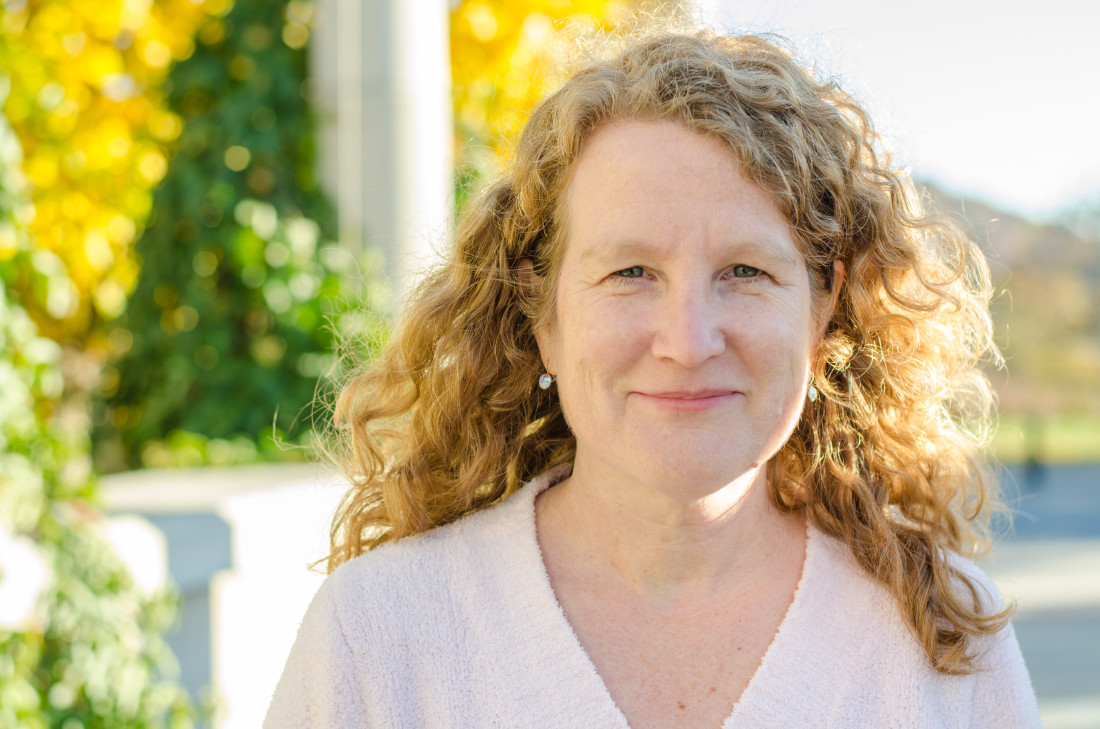Cindy McMahon’s recently released memoir, Fresh Water from Old Wells, begins with the story of a conversation with a friend. That talk persuaded the author to overcome the resistance she felt to writing a book about her personal history.
“I never really thought I would write a book,” says McMahon. She wondered, “Could I really do this? This feels like a huge undertaking.” She knew, too, that she had a difficult story to tell, one that would bring to light many dark moments in her family’s past. In particular, her story would reveal the truth about her domineering, often abusive and ultimately absent father, Al Henry.
“I had been trained my whole life not to tell these stories,” says McMahon, who will read from and discuss Wells at Malaprop’s on Tuesday, June 2. “When you grow up in a family like mine, there’s a lot of deep crap that’s in there, and I was pulling it up by the roots. And I did shed a lot of tears in the process.”
Finally, McMahon faced the challenge of revisiting the people and places involved in her family’s story. This meant reaching 40 years into the past to when her grandfather, Walter Moore, a prominent minister and a leader in the Southern Baptist Convention, was instrumental in the struggle to desegregate Mercer College in Macon, Ga. It also meant retracing the long retreat from the world that forced Al Henry and his family from Whitfield, Miss., to Birmingham, Ala., and from inner-city Atlanta to communal farms deep in the Georgia countryside.
 But McMahon’s nine-year odyssey of research and reflection turned out to be a gift. “The power of place was really kind of transformative for me,” she says. Some of the settings that loom largest in the story: the church in Macon where her grandfather served as pastor and where his name still commands respect; the church in Birmingham where her father first heard the siren call of the civil rights movement; the house in Waynesboro, Ga., where McMahon’s aunt died as a child, struck by a car — and where, two days later, McMahon’s grandfather talked down a mob intent on lynching the black motorist responsible. “That is some powerful stuff right there,” the author says. “It really got down to the cell level for me.”
But McMahon’s nine-year odyssey of research and reflection turned out to be a gift. “The power of place was really kind of transformative for me,” she says. Some of the settings that loom largest in the story: the church in Macon where her grandfather served as pastor and where his name still commands respect; the church in Birmingham where her father first heard the siren call of the civil rights movement; the house in Waynesboro, Ga., where McMahon’s aunt died as a child, struck by a car — and where, two days later, McMahon’s grandfather talked down a mob intent on lynching the black motorist responsible. “That is some powerful stuff right there,” the author says. “It really got down to the cell level for me.”
In McMahon’s telling, these locations evoke the events that formed a backdrop to her inherited drama. “There were all these places where my family touched history and ways we sort of brushed up against history and possibly guided it a little bit,” McMahon says. In particular, Wells explores Henry’s passion for the growing civil rights movement, and then details how, disillusioned and disappointed, he forced his family into a life of instability and near-poverty under the constant threat of his violent rages — a decline that, in McMahon’s words, “echoed the turmoil of the times.”
But Wells is also McMahon’s own story, the story of a survivor and a witness to her father’s struggle. More than the memories of a family that fell under the influence of the turbulent ’60s and ’70s, it’s the story of how researching and writing moved McMahon toward healing and forgiveness.
“I do think a lot of us carry around stuff from our childhoods,” McMahon says. “Lots of people just stuff that into the background and don’t face it. But I have found it very empowering to face it and to come to terms with it and to understand it.”
McMahon jokes that sharing her story with the world turned out to be a little bit like taking her clothes off on Pack Square. But she hopes that it will inspire other people to look at the monsters under their own beds.
WHO: Cindy McMahon
WHERE: Malaprop’s Bookstore and Cafe, malaprops.com
WHEN: Tuesday, June 2, at 7 p.m. Free



Just finished reading this book. I know it must have been a painful trip into the past, but hopefully, a freeing one, as well. Very well written and hard to put down.